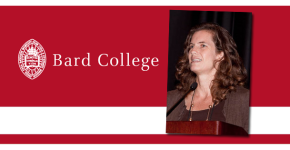Category: Ecology
-

Frank Thompson, University of Missouri – Songbird Populations
A recent NPR piece discussed the threat of climate change on bird populations and what that signals in our changing environment. Frank Thompson, a professor in the Department of Fisheries and Wildlife Sciences at the University of Missouri’s School of Natural Resources, discusses the declining populations of songbirds. Frank Thompson is a scientist with the…
-

Mark Hunter, University of Michigan – Flourishing Despite Climate Change
Naturally, species react differently to climate change. Dr. Mark Hunter, a professor in the Department of Ecology and Evolutionary Biology at The University of Michigan, observed forest moths over a landmark 30 year study. Dr. Mark Hunter is the Henry A. Gleason Collegiate Professor of Ecology and Evolutionary Biology at the University of Michigan. He…
-

Michelle Hersh, Sarah Lawrence College – Lyme Disease and an Unlikely Relationship
“We couldn’t detect an effect, which is really surprising,” said Michelle Hersh in a recent article that appeared in the Poughkeepsie Journal. Dr. Hersh is speaking about the unlikely relationship between ticks and white-footed mice. Though these ticks carry Lyme disease, the population of white-footed mice appears to be unharmed. Dr. Michelle Hersh is an…
-

Denise Dearing, University of Utah – Pikas Adapting to Climate Change
“They may be more resistant to climate change than we thought” says Dr. Denise Dearing in an article that originally appeared on University of Utah News Center website. She’s talking about pikas. These rabbit-like mammals are being forced to adapt to the changing climate. Denise Dearing is studying the evolution of pika diet and observing…
-

Susan Kalisz, University of Pittsburgh – Recipe for Invasive Plant Species
Species interaction dictates a great deal of a location’s biodiversity. Susan Kalisz, professor of biology at the University of Pittsburgh, is linking the diet of deer to the success of the animals’ surrounding flora. Susan Kalisz is a professor of biological sciences at the University of Pittsburgh. She received her Bachelor’s degree from the University…
-

Elizabeth Borer, University of Minnesota – Grassland Fertilization and the Nutrient Network
It’s no secret that the presence of humans has a great effect on the environment. Elizabeth Borer, associate professor in the Ecology, Evolution, and Behavior Department at the University of Minnesota, is conducting global experiments to better understand how plants grow. Elizabeth Borer is an associate professor in the Ecology, Evolution, and Behavior Department at…

